Kyoto Report
| Autumn Color Report 2014 Official autumn color reports by japan-guide.com |
| previous post |
| next post |
2014/12/03 - Kyoto Report
by raina
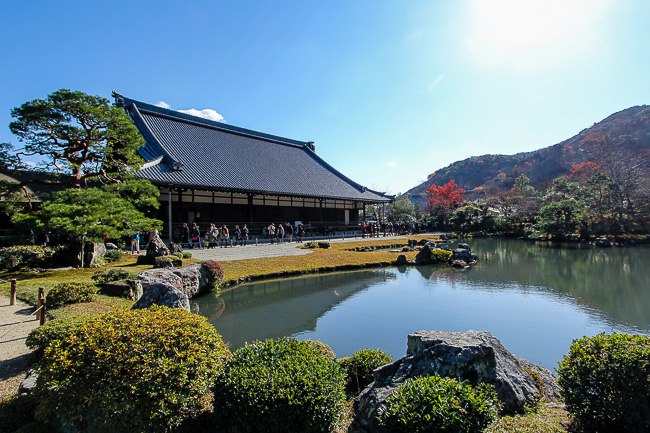
After about two months of reporting almost all over the country, we are reaching the tail end of the autumn season. The leaves and temperatures are starting to fall and the winds getting chillier with each passing day. For those who are in the Kanto Region now, Scott was in Kamakura yesterday and reported that it would be a while more before the autumn colors there reach their peak. Today, I headed back to Kyoto for our last Koyo report in the Kansai Region. This time, I visited Arashiyama and three other temples in the Northern Kyoto, close to Kinkakuji. The autumn colors at all the places I visited today were towards the end of the season with most of the leaves on the ground and only a handful of trees still holding on strong.
Arashiyama was my first stop of the day. The autumn colors near Togetsukyo Bridge were at their peak when Joe was there about a week ago. The fiery red trees on the hill behind the bridge have lost their leaves, making the hill look a little naked. Over at Tenryuji Temple, the colors were also past their peak with a few trees with red leaves on them, and needless to say, those trees drew the most crowds. Entry to the garden at Tenryuji Temple costs 500 yen, and entry to both garden and the interior of the temple costs 600 yen.
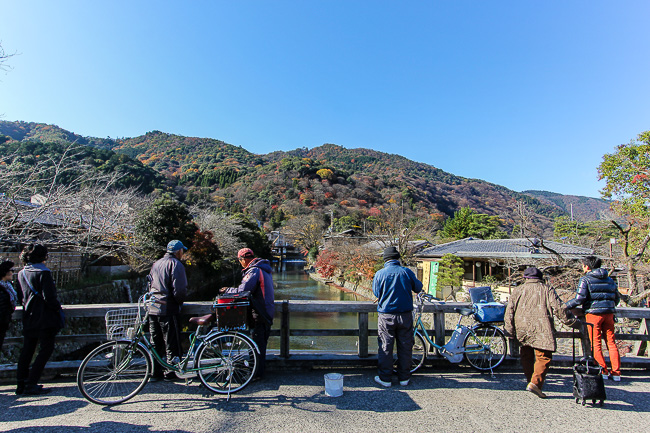
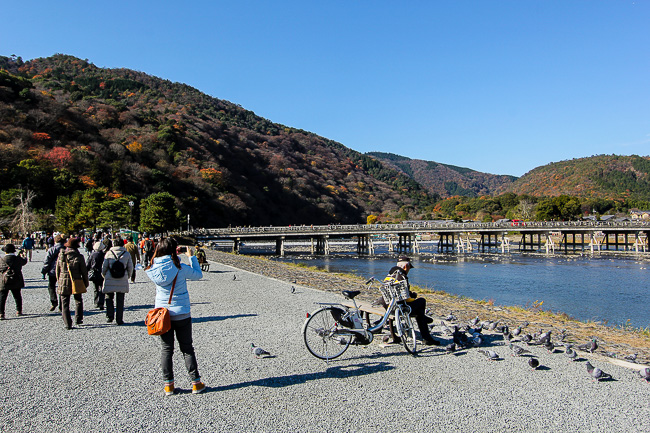
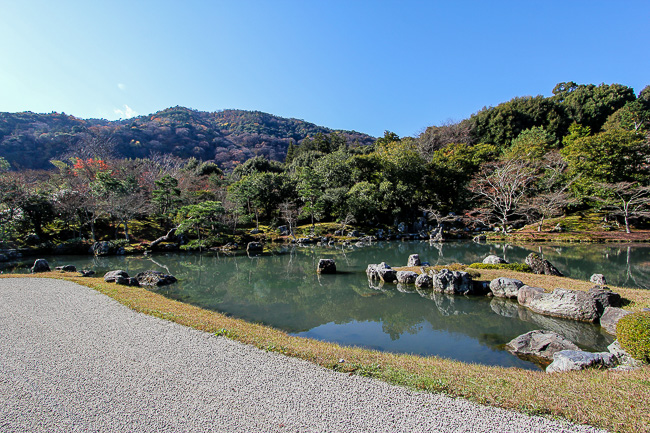
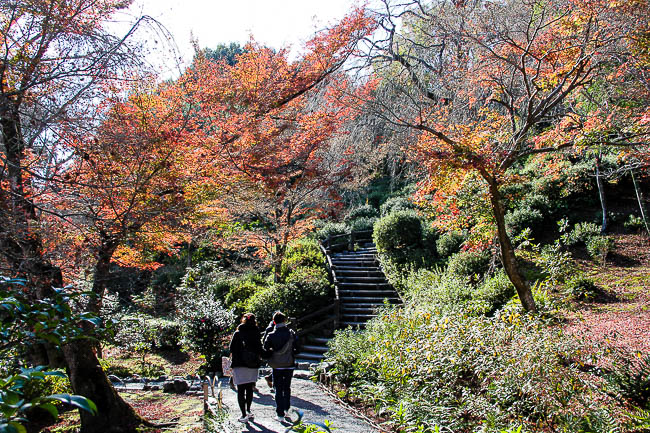
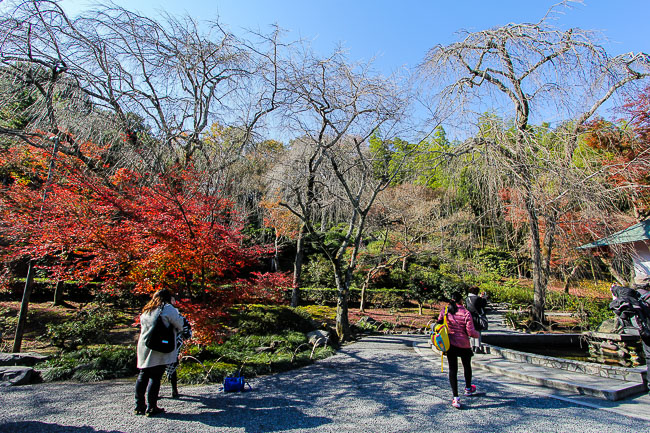
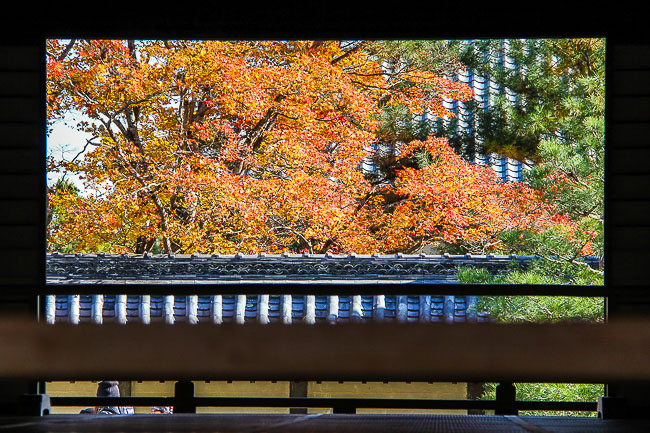
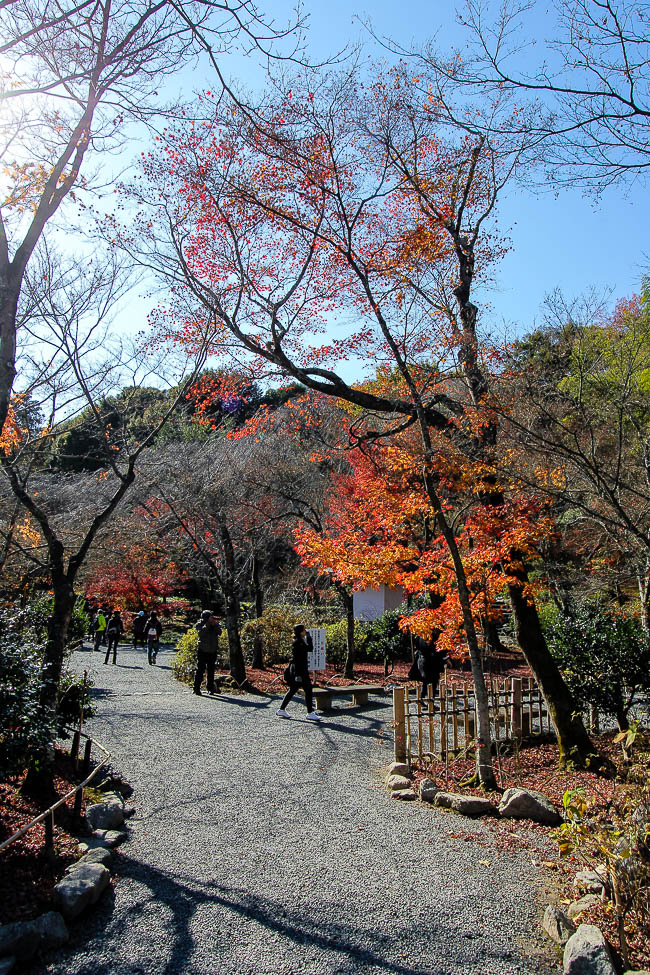
From Arashiyama, I took a taxi to Koetsuji Temple to save time as the trip by bus would take about an hour and a half. I visited two other temples nearby, Genkoan and Joshoji temples, and the three temples are all within walking distance from one another. It would make more sense to visit these three temples, together with Kinkakuji as they are 30 minutes away on foot, instead of trekking across from Arashiyama like I did. Alternatively, take the Kyoto City Bus 6 from Shijo-Omiya Station and get off at Takagamine Genkoanmae (about 30 minutes, 230 yen one way), all three temples are within a three-minute walk from the bus stop.
Koetsuji Temple is a three-minute walk from the bus stop. The land that Koetsuji Temple is built on was originally gifted to the artist Honami Koetsu by Tokugawa Iseyasu. The artist made his residence on the land and after his death, the residence was converted into a temple of the Nichiren sect of Buddhism. There is a small shrine and about seven rest houses that make up Koetsuji Temple. Maple trees line the pathway into the temple, but today, there were no more leaves, just empty branches lining the path. Inside, the pathway leads to all the rest houses and visitors can sit on benches and appreciate the greenery that surrounds all the houses. Entry into Koetsuji Temple costs 300 yen.
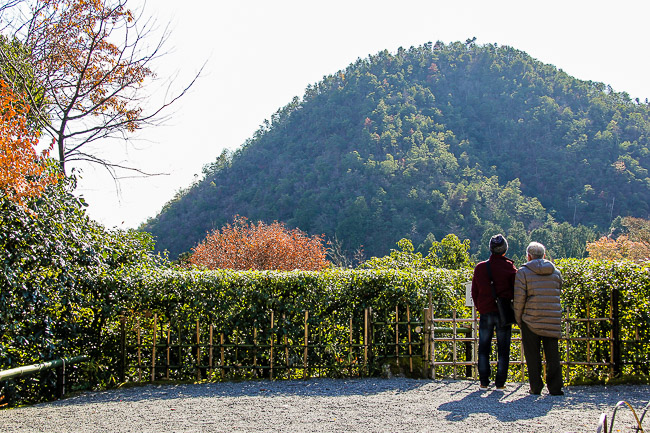
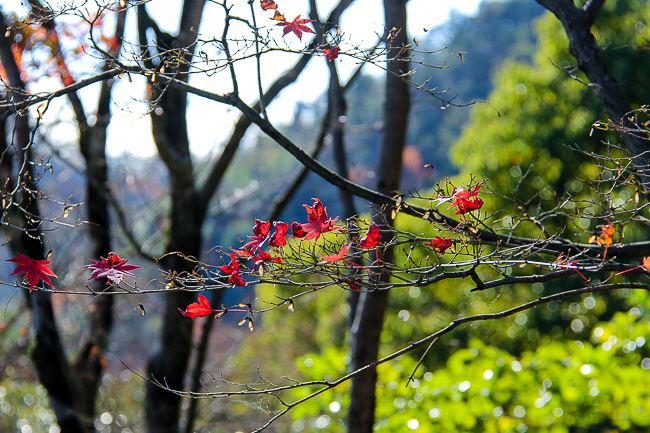
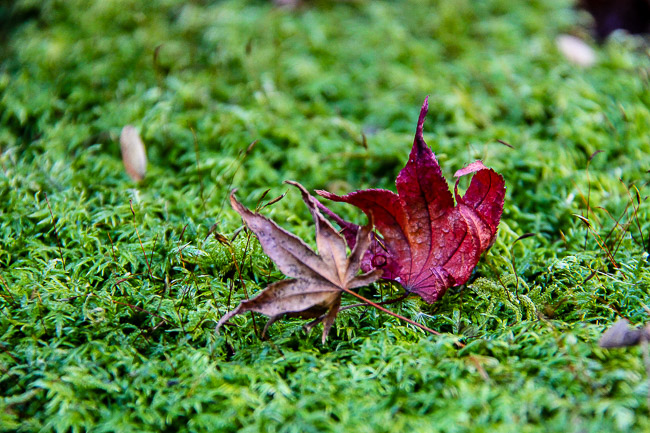
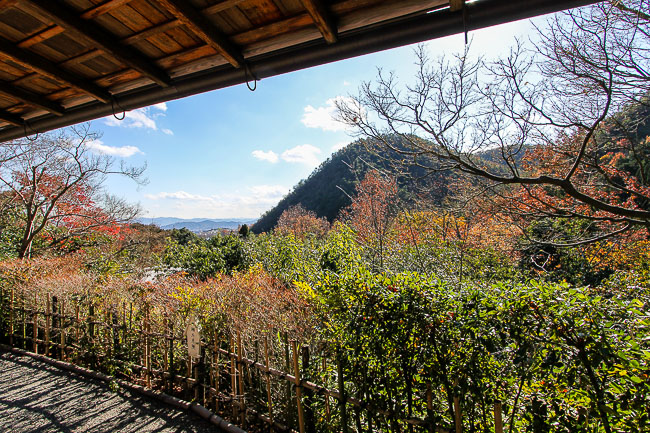
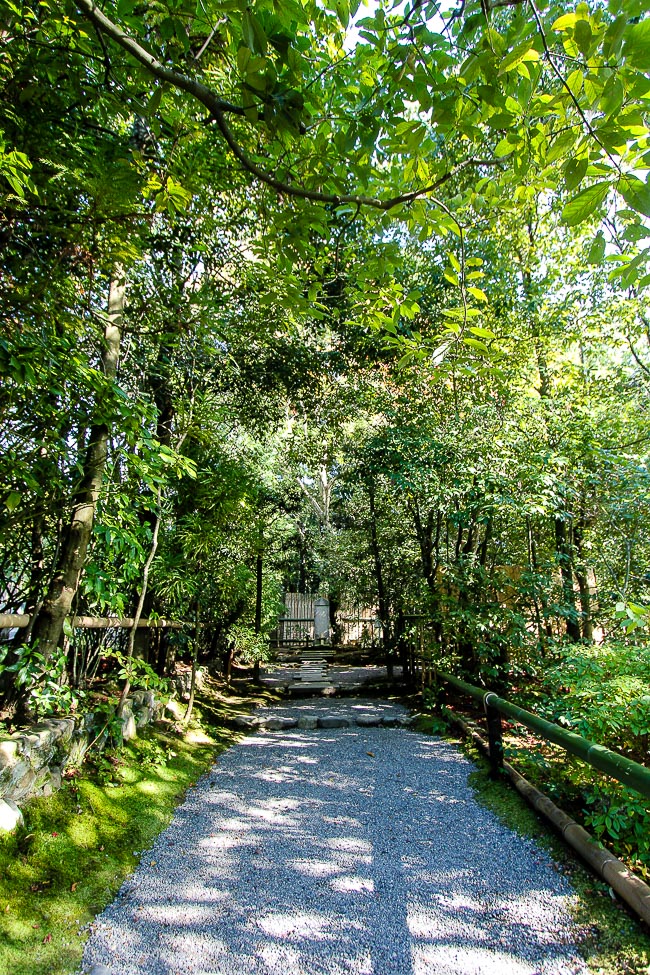
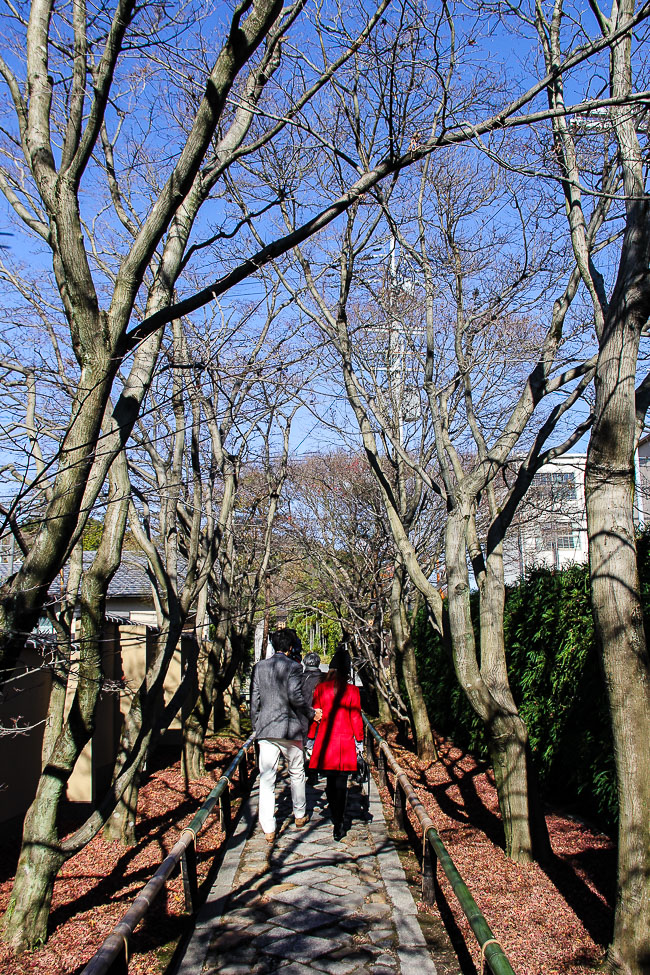
From Koetsuji, I walked towards Genkoan Temple which is about two minutes from the Takagamine Genkoanmine bus stop. Genkoan is a zen temple that is famous for its two windows, one round and one square, in the main hall that look out to the garden. The round window, Satori no Mado, represents calmness and peace of mind, while the square window, Mayoi no Mado, represents the trials and tribulations of life. Perhaps zen monks sat here back in the to meditate and reflect upon the chasm of life and being. There is an entrance fee of 400 yen (500 yen in November) to tour the temple and see the windows. Unfortunately, the view today was not as good as it could be as the autumn leaves have dropped and the view was a little green.
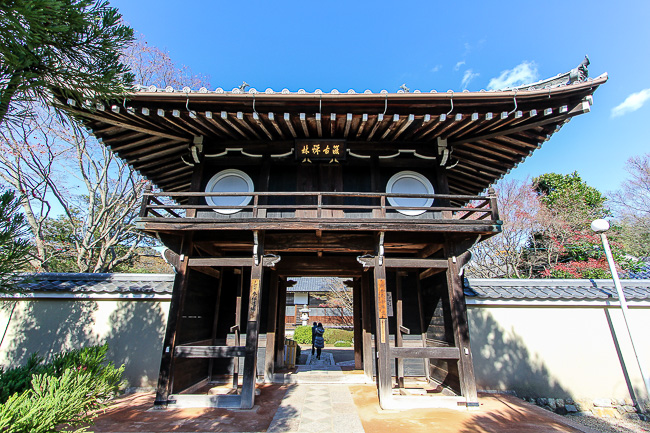
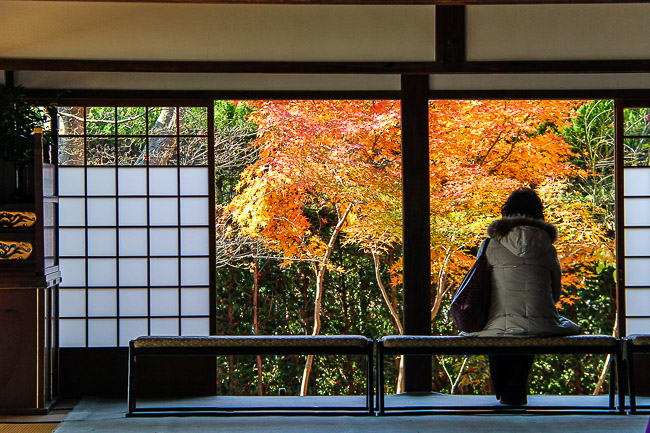
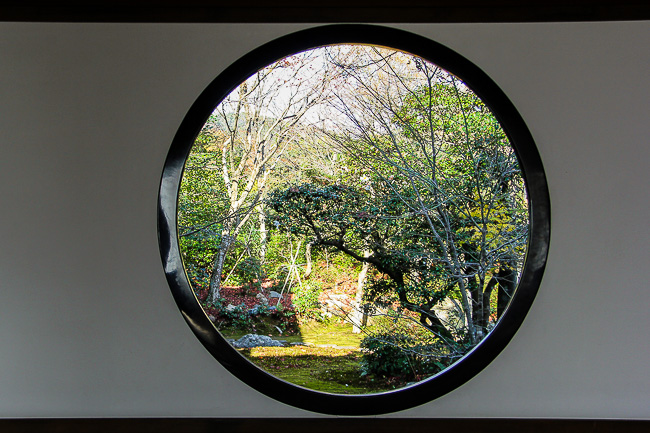
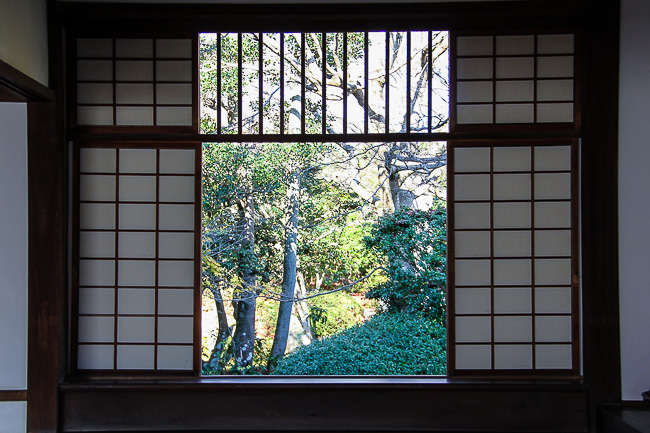
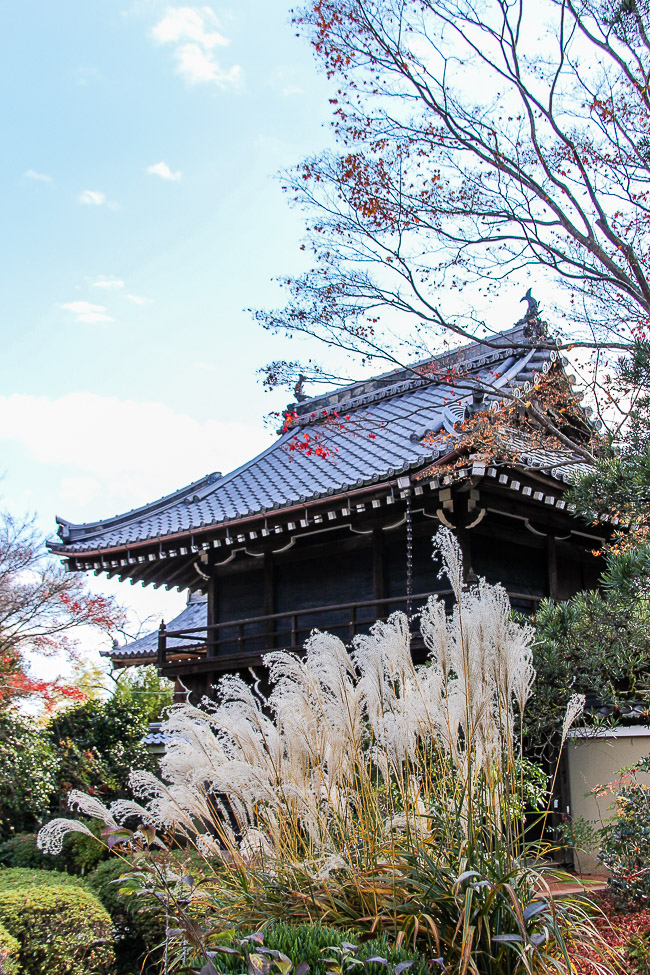
Finally, I headed to Joshoji Temple is about a one minute walk from the Takagamine Genkoanmae bus stop. The temple is famous for its vermillion red gate which was donated by a famous courtesan. There is a building on the temple grounds where the courtesan performed tea ceremony. In addition to the maple trees on the temple grounds, there is a special memorial service held in memory of the courtesan on the second Sunday of April every year at Joshoji Temple. Like the rest of the other temples I visited today, most of the leaves at Joshoji Temple have fallen. However, it is still a pleasant place to visit and explore if you are in the area. Entry to Joshoin Temple costs 300 yen and there is an additional charge of 500 yen for tea and sweets in the garden.
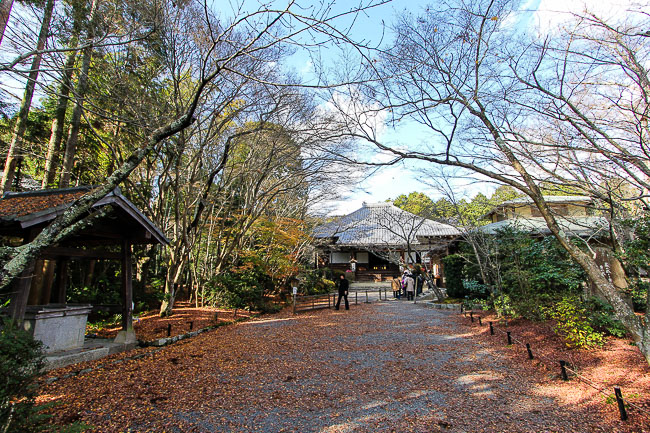
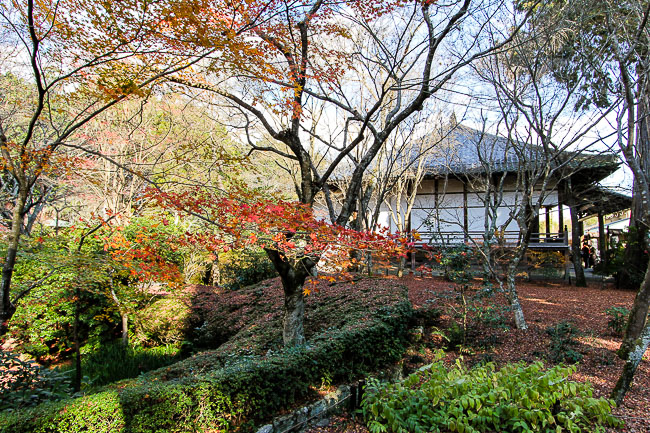
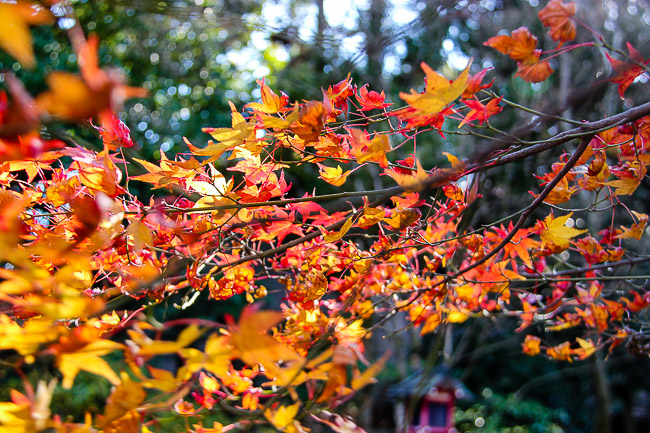
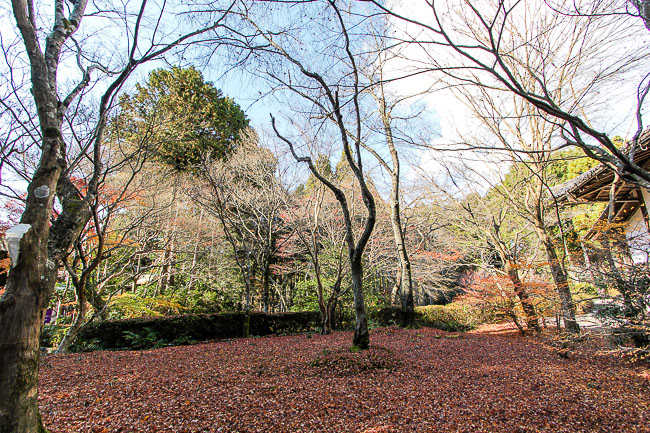
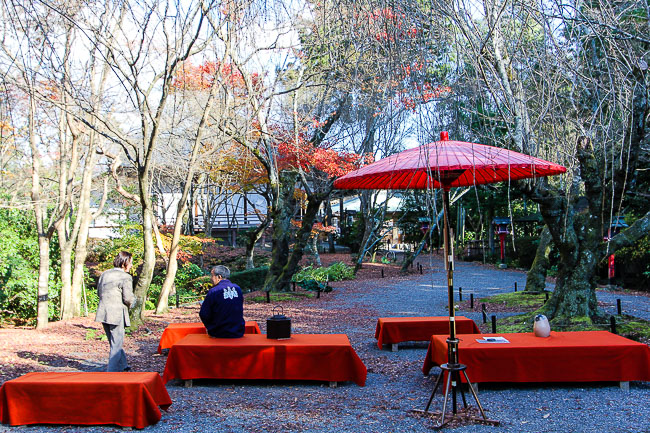
| previous post |
| next post |
|
List of Posts:
2014/12/05 - Tokyo Report 2014/12/04 - Kanazawa Report 2014/12/03 - Kyoto Report 2014/12/02 - Kamakura Report 2014/11/28 - Kyoto Report 2014/11/27 - Tokyo Report 2014/11/26 - Nara Report 2014/11/25 - Kyoto Report 2014/11/21 - Osaka Report 2014/11/20 - Kyoto Report 2014/11/19 - Korankei Report 2014/11/18 - Miyajima Report 2014/11/18 - Tokyo Report 2014/11/17 - Kyoto Report 2014/11/14 - Kyoto Report 2014/11/14 - Himeji Report 2014/11/13 - Fuji Report 2014/11/13 - Tokyo Report 2014/11/12 - Eiheiji Report 2014/11/11 - Kyoto Report 2014/11/07 - Tokyo Report 2014/11/07 - Kyoto Report 2014/11/06 - Yamadera Report 2014/11/04 - Fuji Report 2014/11/04 - Hakone Report 2014/10/31 - Karuizawa Report 2014/10/29 - Shima Onsen Report 2014/10/24 - Fuji Report 2014/10/21 - Bandai Report 2014/10/21 - Nikko Report 2014/10/20 - Towada Report 2014/10/16 - Tateyama Report 2014/10/15 - Kurikoma Report 2014/10/08 - Nasu Report 2014/10/07 - Nikko Report 2014/10/01 - Oze Report 2014/09/29 - Tateyama Report 2014/09/26 - Nikko Report 2014/09/19 - Tokachidake Report 2014/09/18 - Kurodake Report 2014/09/17 - Asahidake Report |
Questions? Ask in our forum.


